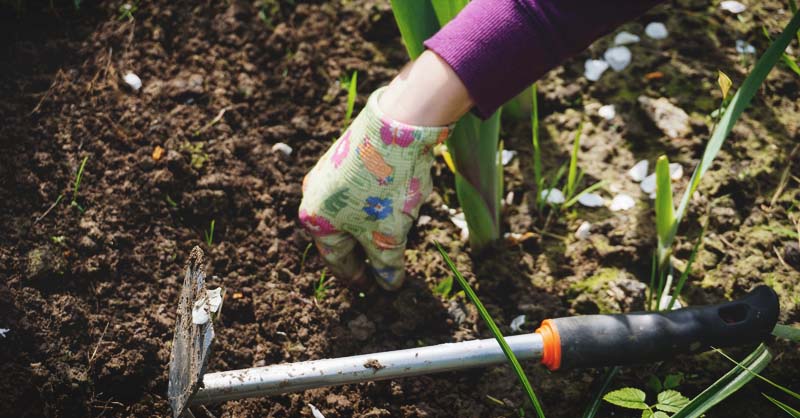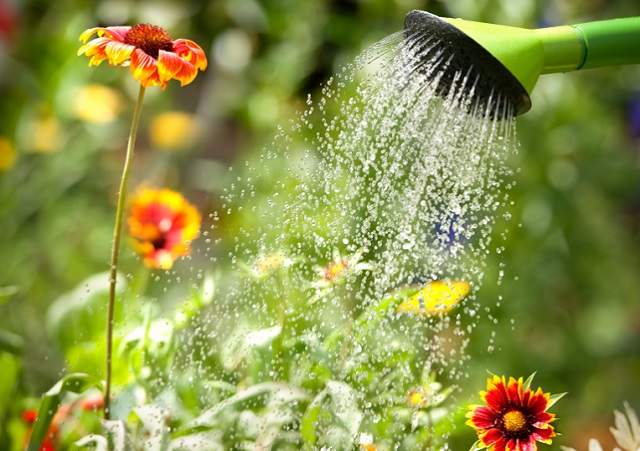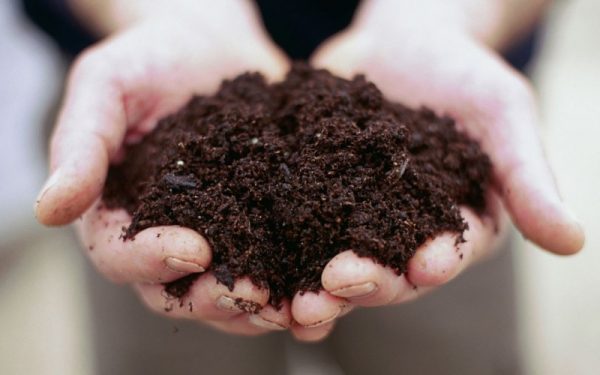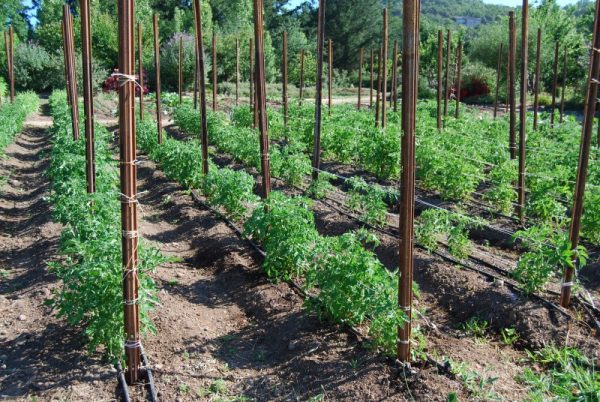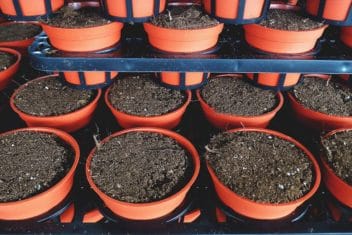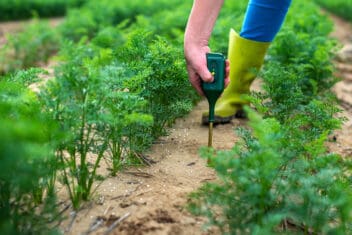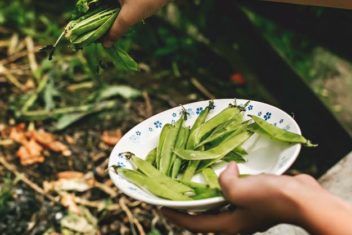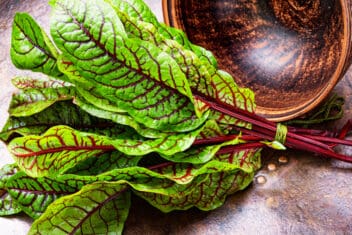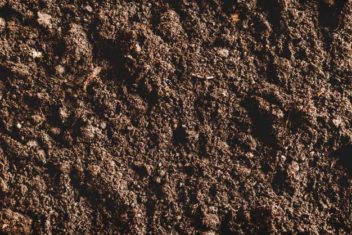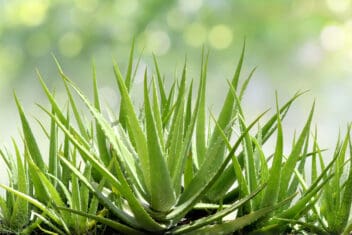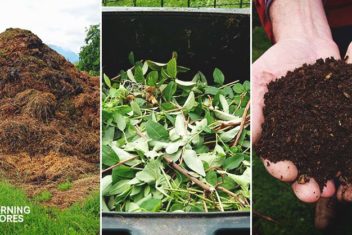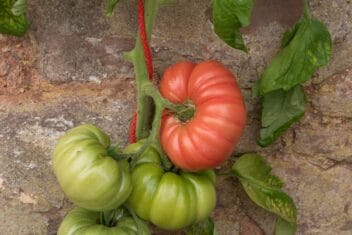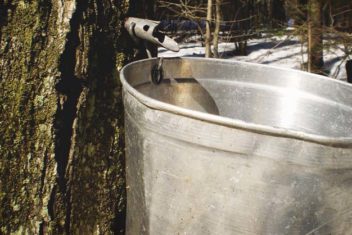Does gardening sound like too much work to you? I’m going to shoot straight with you; it can be overwhelming at times.
However, it is work with a hefty reward. You get lots of fresh vegetables, herbs, and fruit. You also know where they came from and what went into them, giving you peace of mind that you are not ingesting harmful chemicals.
Also, gardening is a great way to get outside, enjoy the fresh air, and get a natural Vitamin D boost as well.
If this sounds great to you, you’ll need to understand that a garden needs care. I’m going to share with you the necessary steps in vegetable garden care to follow to give your garden the proper attention it needs.
That way, you can enjoy an excellent harvest and keep your garden under control to avoid feeling overwhelmed. Here is what you need to do:
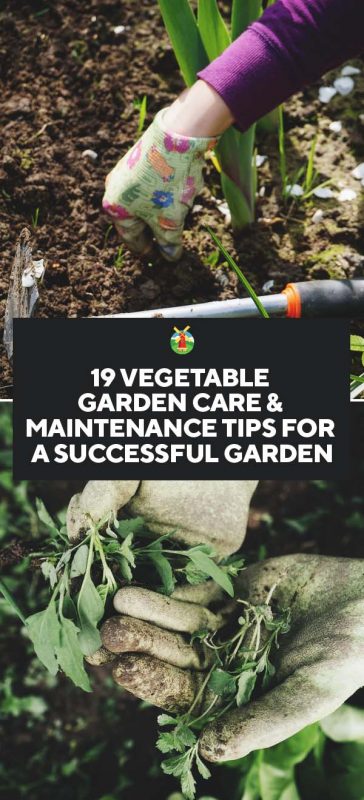
Vegetable Garden Care & Maintenance
1. Mulch is Your Friend
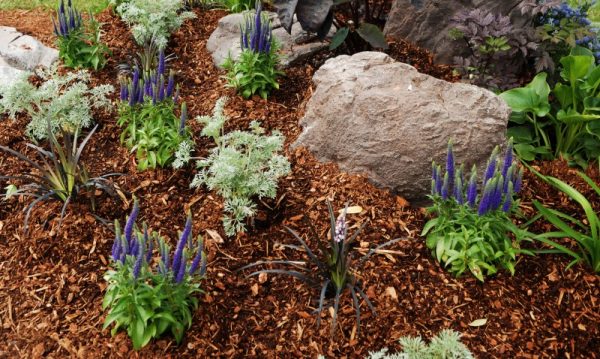
After planting your plants, add mulch around them to keep the soil cool, the weeds down, retain water, and will also compost and add to the quality of your soil.
Be sure to put 2-inches of mulch into your garden each year after planting. It will help your garden start on the right foot and is a major component of good vegetable garden care.
2. Water, Water, Water
Everything on this earth requires water to live. Your plants are no different. Keep this in mind when considering vegetable garden care because if you expect the garden to produce, you’ll have to water regularly.
Each garden will have different water requirements based on what you plant in the garden. On average, you should plan on watering the garden an inch per week. Some plant varieties may require more.
3. Don’t Drench the Entire Plant
As crucial as watering is, it is as important to know how to water your plants. If you water the entire plant, you are leaving room for diseases to happen.
Instead, try to water the root of the plant. Avoid getting water on any blooms or foliage of the plant. It is easier to water the right amount as well, by avoiding overhead watering systems and stick with soaker hoses.
4. Just Say No to Weeds
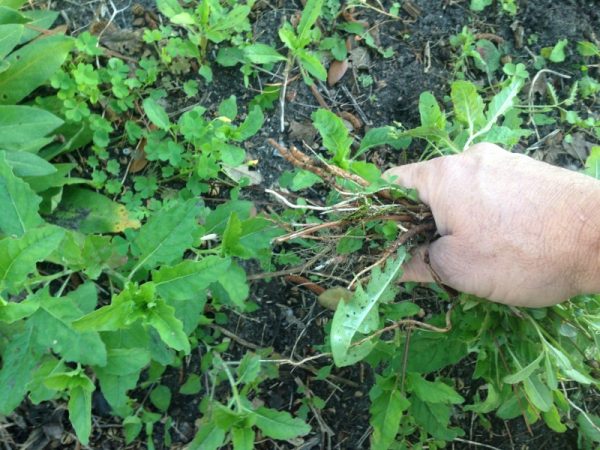
Weeds can be detrimental to your garden. They will compete with your plants for nutrients and usually win the war.
With this in mind, be sure to make it a point to pull weeds from your garden at least once a week. As soon as you see new weeds poking through the mulch, remove them.
5. Feed Them
Fertilizing is important for any garden. Keep in mind, you can choose natural fertilizers, such as chicken manure fertilizer, or you can purchase fertilizers online or locally.
Either way, you should fertilize as much as your plant varieties need. Some plants need fertilizer more frequently than others. Be sure to do your research before applying anything to your garden.
6. Pull Out the Dead
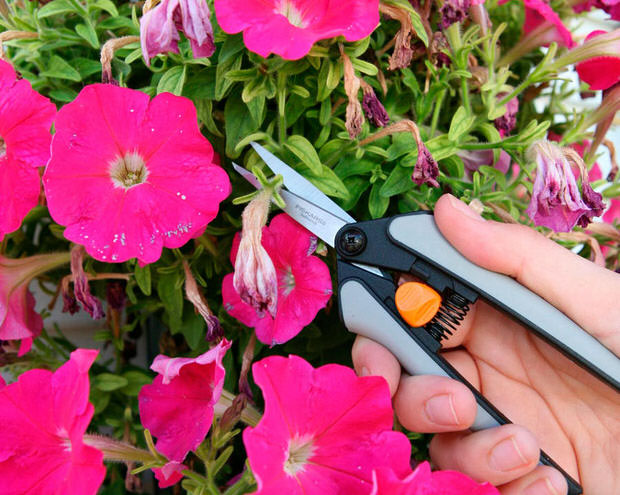
When your plants begin to bloom, it will be natural to find dead blooms on a plant. Be sure to remove these, a process called deadheading.
Not only will it add to the look of your garden, but it will also make room for new blooms to increase the plant’s production.
7. Give Your Plants Check-Ups
If you want to stay ahead of pests and diseases, you are going to have to put in the effort to spot them before they do any real damage.
How do you go about doing this? You need to make it a priority to check your garden weekly for signs of pests or illness in your plants. If you see either, begin treating right away.
8. Crop Rotation for Good Vegetable Garden Care
Crop rotation is one of the most important things you can do for vegetable garden care. The reason is if you plant a crop in the same location year after year, pests are going to figure it out and treat your yard like an all-you-can-eat buffet.
Plus, if you don’t give the soil a break in particular areas of your garden by planting other items, you could also give diseases a solid breeding ground. Make rotating your crops a priority.
9. Give Your Soil a Boost
The soil is your garden’s foundation. Your plants depend upon it to hold the moisture they need and to feed them. If your soil isn’t healthy, don’t expect much more from your plants.
You need to make boosting your soil a priority. Test the soil to see what it needs and feed it. It may take a few years, but by investing in it, your plants will do much better.
10. Clean Your Garden Tools
A lot of people don’t pay attention to the cleanliness of their garden tools. You might wonder why you should bother cleaning something if it is going to be covered in dirt with your next use.
Garden tools are in your soil, and there could be disease there also. To stop the spreading of viruses and diseases, it is important to clean your gardening tools regularly.
11. Give Your Plants a Lift
Certain plants in your garden will become heavy from producing. Plants, like tomatoes, will need a stake in the ground and some twine to tie them up.
It will help provide support to the plant, which keeps the tomato plant off the ground. This will protect the produce from becoming rotten and the plant from getting diseases and is all part of proper vegetable garden care.
12. Practice Good Sanitation
It is funny when you think how important sanitation can be in a garden since dirt surrounds it. Yet, sanitation is an important component of caring for your garden.
Be sure to clear any dead plants, leaves, or any other debris in your garden. Keeping the dirt clear, gives pests fewer places to live and thrive. In turn, this keeps your garden healthy.
13. Harvest Your Garden
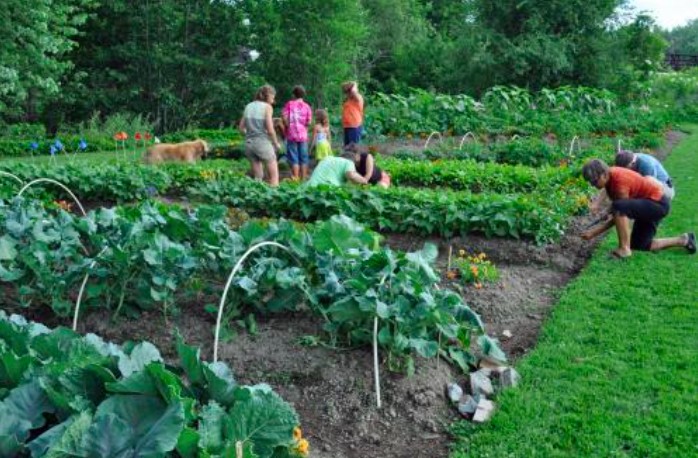
When your garden begins to produce, be sure to harvest it promptly. If you leave the yield in the garden for too long, it will rot.
From there it will hit the ground and begin drawing pests you don’t want or need to your garden. Making sure to keep your garden picked is a great way to provide care for it.
14. Prune Properly
Pruning is as important as harvesting. Your plants will need to be pruned during their dormant season if you have perennials in your garden such as fruit trees.
When pruning, be sure to leave room for new growth without bringing harm to the plant and will keep your plants healthy and vibrant.
15. Choose Disease-Resistant Plants
If you want to keep a healthy garden, the best place to start is by not inviting disease into it. One of the best ways to do this is to invest in plant varieties that are resistant to diseases in your area.
You can accomplish this by researching common diseases in your area, or by speaking with someone at a local nursery.
16. Plants Need Their Space
Are you someone who enjoys your personal space? My mom is a ‘hugger,’ but my sister and I are the farthest things from it.
Well, keep this in mind when planting your garden. Your plants are not ‘huggers.’ They need room to grow and room for air to circulate to fight off disease.
17. Location, Location, Location
One of the best ways you can care for your veggie garden should be done before you even start. You need to pick a great garden location.
This location should be level (to ensure proper water distribution), and it should get at least 6 or more hours of sunlight. Choosing an excellent garden location can stop many problems many gardeners face.
18. Keep It in Your Zone
Caring for your garden boils down to taking care of your plants and soil. You want to keep them both disease and pest free. Along with making sure they both are well fed.
A great way to give your plants their best shot is to make sure you plant within your zone. If you follow the guidelines for your planting zone, plant on time, and plant only what can grow in your location, you are making wise choices for your garden. This equates to great care.
19. Close Out the Year Well
The final tip to caring for your garden is to make sure you close out the year well. When you are done gardening for the year, be sure to clean the garden up. Remove dead plants and any stray tools or debris.
Finish the job by covering the gardening area in compost, manure, and mulch. It will give your soil a boost for the next growing season and will protect it as well. You could even plant a cover crop over your garden to provide the soil with another layer of protection.
You now have 19 different tips for caring for your garden which will help you have a successful gardening season without becoming overwhelmed.
The key to great gardening is to vegetable garden care as you go. Preventing your garden from becoming overgrown and then be much more difficult to care for.
